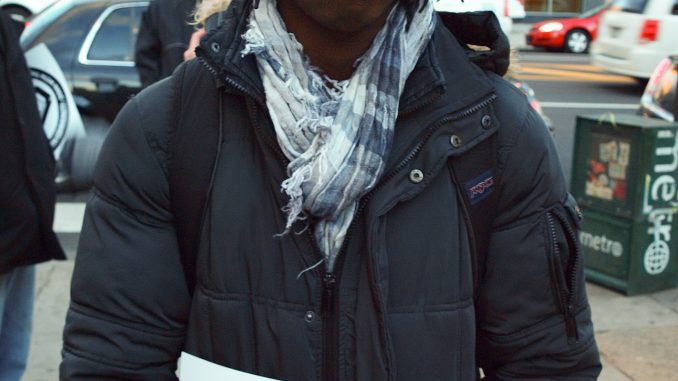
Cornelius Moody was inspired by Ramona Africa in 2015. The senior neuroscience major first heard her speak at a University of Pennsylvania event about the 1985 police bombing of MOVE, a former West Philadelphia Black liberation and ecology organization.
Africa is a survivor of the MOVE bombing, which occurred after tensions rose between the organization and Philadelphia Police. On May 13, 1985, the police dropped a bomb on Osage Avenue near 62nd Street, causing a fire, which burned down two city blocks and left 11 people dead, five of them children.
The events that Africa described were never taught in Moody’s 12 years of public school education in Philadelphia, he said.
“That immediately changed how I thought of the policing system,” he said. “I was under the impression that the police were nice and they’re here to protect you. What nice police drop a bomb on a residential neighborhood?”
“Simply listening to people who have these sort of experiences was enough to guide how I really felt about things,” he added.
Moody, who grew up in South Philadelphia, said he was not fully aware of the complicated system in which he lived. As a young student, he said he encountered “extreme school policing, underfunding of schools” and saw an uneven distribution of resources in the School District of Philadelphia.

He now sits on the steering committee for the Philly Coalition for REAL Justice, a grassroots organization that focuses on racial, economic and legal justice reform through community outreach and political education. He is also an active supporter of The Stadium Stompers and participated in the organization’s “Traffic Study” protest Wednesday at Broad Street and Cecil B. Moore Avenue.
Moody also supports Fight for $15 PA and the North Philadelphia chapter of Food Not Bombs, which shares food that would otherwise be thrown out with the public, regardless of status. The organization also hands out free meals at protests and events.
Moody said he wasn’t always so politically active, and at the start he was often misdirected.
“I went from not really knowing about what’s happening and thinking protesting was the way to answer things, to immediately seeing how organizing is important to get a better idea of what needs to be changed, and how people can approach changing it,” Moody said.
In April 2015, Moody experienced political activism for the first time during REAL Justice’s “Philly is Baltimore” event, a solidarity march with Baltimore protests of the death of Freddie Gray, who died while in police custody.
Since joining REAL Justice, Moody has participated in protests against police brutality and in Black Lives Matter protests. He can often be seen leading chants and demonstrations at protests, like this past summer’s BLM protest, where Moody rode on the back of a U-Haul truck and led the crowd with a megaphone.
“The biggest thing I learned is seeing the force of opposition I’ve never seen before,” Moody said. “Because there is a different class of experience when you’re not challenging people’s power.”
Wende Marshall, an adjunct anthropology and Intellectual Heritage professor, is a Stadium Stompers organizer who works closely with Moody. She said students should think about how the football stadium will affect the residential community.
“Students should go to protests, write to the Board of Trustees and city officials to show their non-support for the stadium,” Marshall said. “Student support is crucial, if students don’t want the stadium, it will never happen.”
Moody believes protesting within permitted legal guidelines should not be resisted, but instead should be celebrated because of the First Amendment’s right to assemble.
“The police will be really nice to you, or Temple is really nice to you as long as you ask for things that they’re okay with giving you,” Moody said. “When you ask for something, like not having a football stadium on campus or you ask for full accountability for the murder of Joyce Quaweay, then they tend to get a lot more resistant.”
Moody said he intends to seek accountability for the 2016 murder of Quaweay, who was assaulted and murdered in her home by two former Temple police officers, in front of her two daughters. There was a protest related to the cause on Feb. 17 at Thomas Paine Plaza titled “Black Resistance: Against Police Terror and State Repression.”
He added that Temple students should become more involved and take ownership of the community they live in through organizations like Stadium Stompers.
“Not just to work with the organization, but to gain easy connections with other groups and movements the local community actually support,” he said. “If you’re paying tuition to Temple and you’re not holding the university accountable on what they spend your money on, then you’re, like, partly responsible for that.”
Henry Savage can be reached at henry.savage@temple.edu.


Be the first to comment